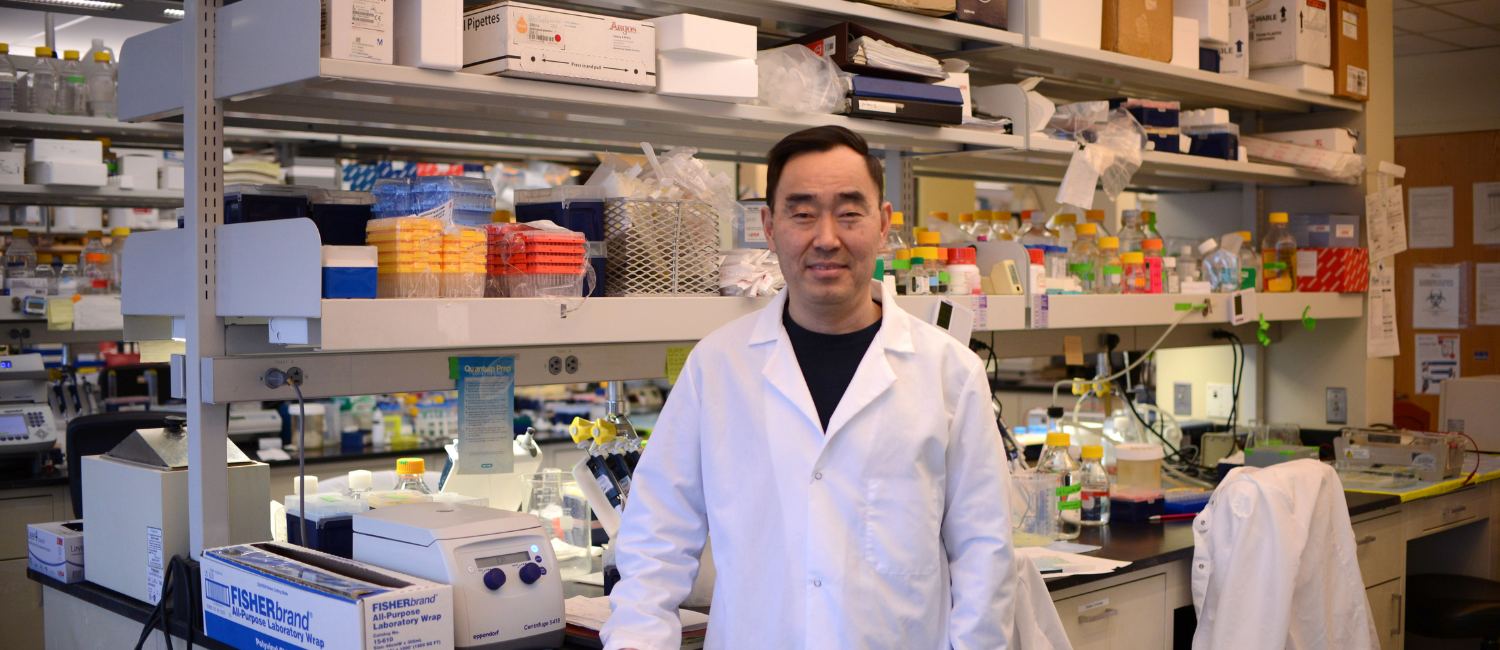Penn Vet and Penn Medicine Researchers Receive Nearly $6 Million in Renewed NIH Funding to Study Epigenetics of Reproduction in Animals and Humans

A multidisciplinary group of researchers from the University of Pennsylvania’s School of Veterinary Medicine (Penn Vet) and the University’s Perelman School of Medicine (Perelman) have received $5.95 million in renewed funding from the National Institutes of Health (NIH) to study male and female reproduction in animals and humans.
The funding supports the Penn Center for the Study of Epigenetics in Reproduction (PCSER), which focuses on epigenetic mechanisms that govern male and female reproduction, contribute to male infertility, and impact on development of mouse and human concepti conceived through Assisted Reproductive Technologies (ART). Funded by the NIH since 2011, the PCSER consists of Penn Vet’s P. Jeremy Wang, MD, PhD, Ralph L. Brinster President’s Distinguished Professor, and Perelman’s Marisa Bartolomei, PhD; Monica Mainigi, MD; and Suneeta Senapati, MD, MSCE.
The renewed funding will support Wang’s investigation of a testis-specific protein TEX15, discovered by his laboratory, which is required for male fertility. Wang’s research program focuses on the cellular, molecular, genetic and epigenetic controls of meiosis, the process of cell division that is unique to germline cells and generates genetic diversity. He seeks to identify abnormal meiosis that are responsible for spontaneous pregnancy loss or human congenital conditions.
Wang is Director of Penn Vet’s Center for Animal Transgenesis & Germ Cell Research. He received his MD from Peking University Health Science Center and his PhD in Molecular Biology and Genetics from Cornell University.
Related News

Penn Vet’s Annual Research Retreat Calls for the Power of Synergy in Challenging Times
Noting the challenges ahead, but celebrating the many breakthroughs at hand, the University of Pennsylvania School of Veterinary Medicine (Penn Vet) community gathered for their 31st annual Research Retreat held…

Penn Vet’s Next Gen Biomedical Scientists Present Their Research at the Annual Veterinary Scholars Symposium
Two dozen budding Penn Vet scientists presented a rich array of ambitious biomedical research projects at the annual Veterinary Scholars Symposium held last month in Spokane, Washington.

Breakthrough Discovery Reveals How Connection Between Mitochondrial Vulnerability and Neurovasculature Function Impacts Neuropsychiatric Disease
Research from University of Pennsylvania School of Veterinary Medicine and Children’s Hospital of Philadelphia suggests that repurposing a cholesterol drug may benefit 22qDS patients with neuropsychiatric disease
About Penn Vet
Ranked among the top ten veterinary schools worldwide, the University of Pennsylvania School of Veterinary Medicine (Penn Vet) is a global leader in veterinary education, research, and clinical care. Founded in 1884, Penn Vet is the first veterinary school developed in association with a medical school. The school is a proud member of the One Health initiative, linking human, animal, and environmental health.
Penn Vet serves a diverse population of animals at its two campuses, which include extensive diagnostic and research laboratories. Ryan Hospital in Philadelphia provides care for dogs, cats, and other domestic/companion animals, handling more than 30,000 patient visits a year. New Bolton Center, Penn Vet’s large-animal hospital on nearly 700 acres in rural Kennett Square, PA, cares for horses and livestock/farm animals. The hospital handles more than 6,300 patient visits a year, while our Field Services have gone out on more than 5,500 farm service calls, treating some 22,400 patients at local farms. In addition, New Bolton Center’s campus includes a swine center, working dairy, and poultry unit that provide valuable research for the agriculture industry.

